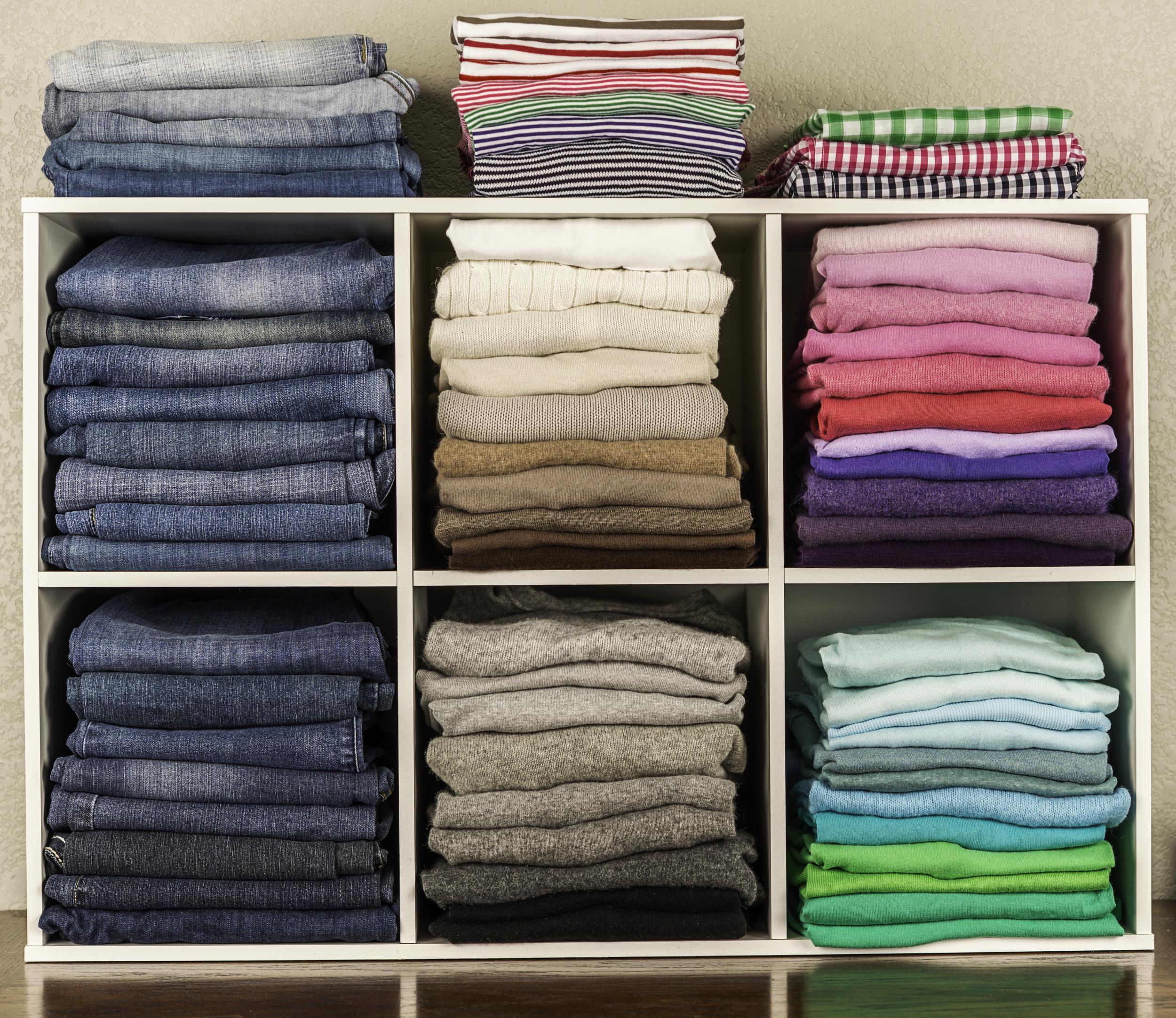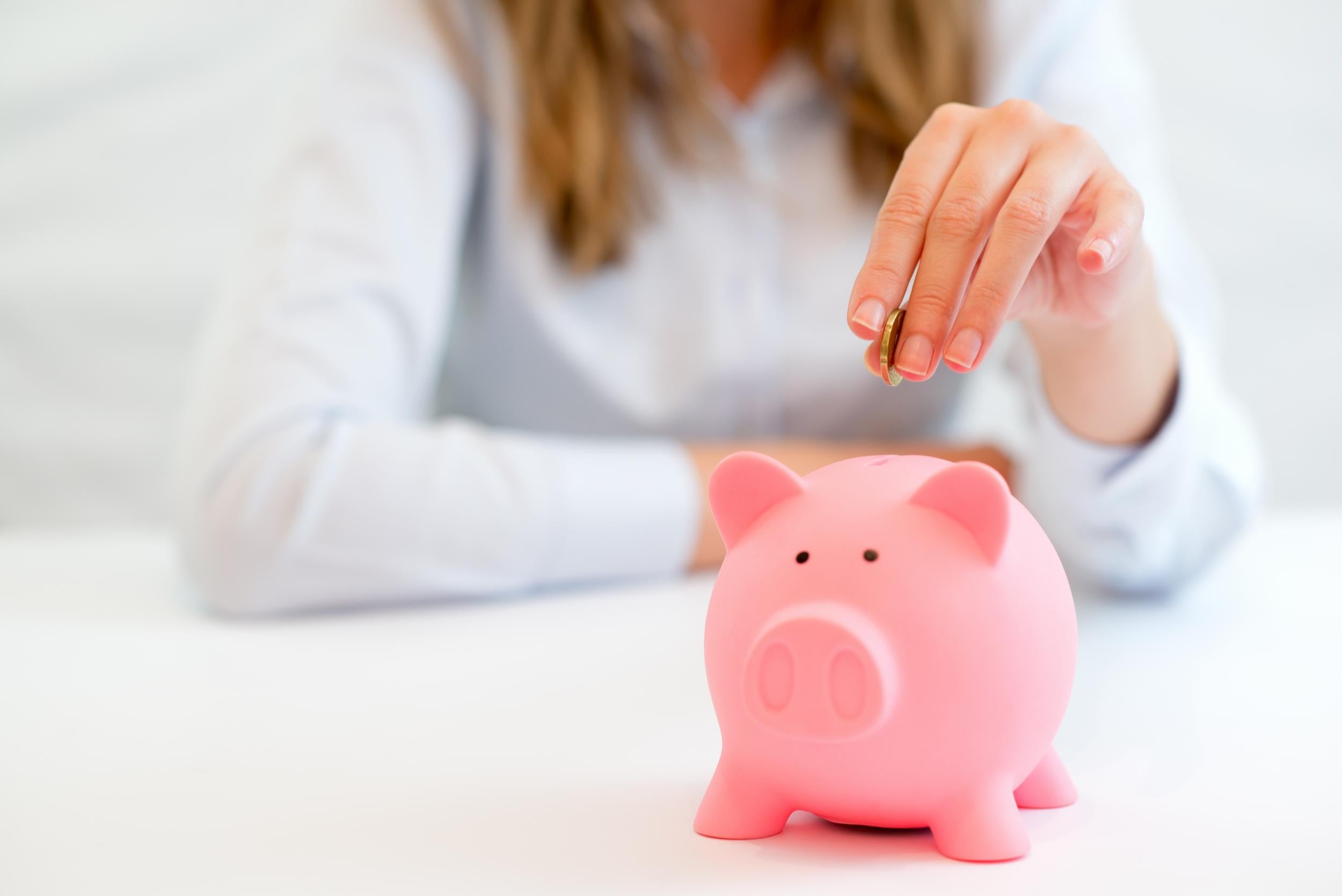The Independent's journalism is supported by our readers. When you purchase through links on our site, we may earn commission.
Five things that happen when you give up shopping for a year
Could you give up shopping for a year?

Your support helps us to tell the story
From reproductive rights to climate change to Big Tech, The Independent is on the ground when the story is developing. Whether it's investigating the financials of Elon Musk's pro-Trump PAC or producing our latest documentary, 'The A Word', which shines a light on the American women fighting for reproductive rights, we know how important it is to parse out the facts from the messaging.
At such a critical moment in US history, we need reporters on the ground. Your donation allows us to keep sending journalists to speak to both sides of the story.
The Independent is trusted by Americans across the entire political spectrum. And unlike many other quality news outlets, we choose not to lock Americans out of our reporting and analysis with paywalls. We believe quality journalism should be available to everyone, paid for by those who can afford it.
Your support makes all the difference.There’s a reason the term “retail therapy” exists - shopping or buying new things can have the ability to make you feel better, at least for a short while.
But what happens when you follow the advice of Dorothy Day - who said “the best thing to do with the best things in life is give them up” - and give up consumerism for an entire year?
According to multiple people’s forays into year-long shopping bans, the experience can be quite a transformative one.
You feel less stressed
Apparently, clutter can directly affect your mental well-being.
By stopping buying things, you can tackle the issue and give your life more clarity.
Kathryn Mclamb, who documented her long-term shopping ban for PopSugar, said "I became inspired by the simplicity. The less I became bogged down by stuff, the lighter my mind began to feel, and the more my soul could breathe."

According to Mclamb, there is something very inspiring about getting rid of your stuff.
You save time
One pretty obvious outcome of giving up shopping is having more money to save or spend on experiences - but a surprising benefit is an increase in free time.

Whether you consider shopping a fun pastime or not, we’ve all been in a situation where we felt pressure to shop for the perfect outfit.
But as Ann Patchett, writing in the New York Times, discovered, “No shopping saves an astonishing amount of time,” a realisation she discovered prior to interviewing Tom Hanks about his collection of short stories in front of 1,700 people in a Washington theatre.
“Previously,” she said, “I would have believed that such an occasion demanded a new dress and lost two days of mine life looking for one. In fact, Tom Hanks had never seen any of my dresses, nor had the people in the audience. I went to my closet, picked out something weather appropriate and stuck it in my suitcase. Done.”
You'll find forgotten items
If you’ve ever lost a chapstick or some hair ties, a shopping ban is the best time to find it.
In addition to finding old favourites in the back of your closet or under your bed, you may also find you already own a lot of the things you would have bought without thinking twice.
For Patchett, this realisation came in the form of a lip balm. Rather than running to the store for a new one, she searched her jacket pockets and desk drawers, and "found five lip balms."
Your shopping ban must include exceptions
While the idea of buying absolutely nothing for an entire year is nice in theory, it is also unrealistic.
For a shopping ban to work, you have to understand that there will be certain exceptions - or it’s likely you’ll be setting yourself up for failure.
Mclamb's shopping ban applied to material items but excluded experiences, meaning she could spend the money she had saved on concerts, travel, and new memories.
Patchett said her year-long shopping ban had multiple exceptions: “I could buy anything in the grocery store, including flowers. I could buy shampoo and printer cartridges and batteries but only after I’d run out of what I had. I could buy plane tickets and eat out in restaurants. I could buy books because I write books and I co-own a bookstore and books are my business.”

And while Patchett admits she could have made it a full year without buying books, by using the library or reading books she already owned, she bought books instead.
One woman, writing anonymously about her experience on BecomingMinimalist, gave up buying clothes for an entire year, the only exceptions being new underwear and new shoes, but only if they were absolutely necessary. But even in those cases, she realised taking out a sewing machine and mending the holes in underwear and socks was “surprisingly satisfying.”
But for Cait Flanders, who even gave up buying lattes and cheap e-books as part of her shopping ban, realised, these choices can make it harder to achieve your goals.

In a blog post on the Financial Diet, Flanders admitted to breaking her ban multiple times, often without realising until after the deed was done, or the latte was ordered.
You will learn important lessons
In addition to the obvious benefits - you’ll save money, you’ll have more space - you may learn some pretty interesting things about yourself and your habits.
Mclamb summed up what she took away from the experiment, stating, “I’ve realised I don’t need anything.”
After giving up shopping, Mclamb says she gained more “appreciation for living simply and not simply living.”
For Patchett, changing her own habits meant realising she could help others who weren’t as fortunate. She said, “Once I was able to get past the want and be honest about the need, it was easier to give more money to people who could really use it.”
However, Patchett also wrote that she realises that, “Not shopping for a year hardly makes me one with the poor, it has put me on the path of figuring out what I can do to help.”
And regarding shopping cravings, she learned that her parents were right all along - if you wait a few days, the feeling will most likely pass.
For Flanders, the shopping boycott forced her to take a deeper look into why she actually shopped, and she realised “most of the stuff she bought was to exhibit some level of success to other people.”
Rather than fulfil any actual need, Flanders noticed, “I had bought books simply because I wanted them to be on my bookshelf when people came over, so they thought I was well read. I purchased outfits for the same reason, but didn’t feel good in any of them, so they remained hung up and unworn in my closet. And my home was full of brand-new, matching furniture, because that felt like success to me, which is how I wanted to be perceived.”
New Year's Resolution anyone?
Join our commenting forum
Join thought-provoking conversations, follow other Independent readers and see their replies
Comments